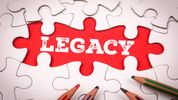Good to see a major initiative in France where Solera announced a partnership with Five Star to implement its AI-based estimating system, Qapter, into one of the largest auto body shop networks in France. Over the last month, Solera has begun to roll out the AI estimating system throughout the network of 525 shops.
At a time when the UK's Tractable has achieved unicorn status addressing the same issues and, amongst others, LexisNexis, Mitchell and Verisk all announce new deployments of AI enhanced auto repair estimating systems you feel we have passed a tipping point.
Vendors have been aiming for the 80% accuracy outcomes though whether that is with just simple accidental damage or all claims is open to validation.
The Solera & Five Star initiative, as do all deployments to be fair, augment human intuition with virtual inspections combined with AI, rules engines all the while leveraging massive databases of past claims images and repair outcomes.
Through the month rollout with Five Star along with Solera’s testing, they determined using the AI estimating system was 40 percent quicker. An average manual estimate took roughly 26 minutes, while using the intelligent estimating system took roughly 15 minutes on average. For some of the simplest claims, Lanchon said the estimate can be done within three minutes.
There is another trend that impacts these technologies.
You wonder how the increasing adoption of automated driver assisted systems ADAS will impact accident repair management and claims. The vast amount of data generated by each vehicle is analysable and should be AI-ready. Should be.
Balance that with this. As cars and trucks become more software than hardware in value the rising costs and complexity of recalibrating sensors and CPUs makes this more difficult. Past data is predominantly from internal combustion engine (ICE) vehicles and not EVs. As autonomous vehicles come nearer to reality that only becomes a more pressing issue.
Repair networks, engineers, loss adjusters, claims teams, insurers and brokers (not to mention vehicle OEMs) are ICE- centric. Born and bred petrol and diesel heads.
How will they and all parties involved in vehicle repair cope with this dramatic change? Tesla is a software, data mastery and battery technology enterprise which has learnt the hard way how to assemble vehicles. The ICE manufacturers must learn things the other way round and VW's first efforts with the ID3 and ID4 were underwhelming in software terms.
Tesla has no ICE legacy to overcome as VW and others must if they are to become software companies.
Solera, Tractable, Mitchell, LexisNexis, Verisk and other similar AI driven software and platform companies must hope that the growing multitude of vehicle technology stacks consolidates around standards and a few major vehicle OS platforms. Otherwise automation, efficiency and fast claims settlement may remain elusive.
It’s the first body shop network in France to use the AI system and it’s part of a larger effort to globalize it’s estimating process. Considering it’s strong relationship with Five Star, a subsidiary of Axalta, it was the natural place to start, Lanchon said. “Qapter’s rollout in the Five Star network fully aligns with our digital strategy. Supporting auto body mechanics through artificial intelligence to deliver estimates quickly and accurately will strengthen their credibility not only with customers, but with business providers as well. This support is all the more significant in the implementation of our fast bodywork concept, Repair Zen,” President of GIE Five Star Alain Bessin said in a statement. ADAPT Automotive recently spoke with Lanchon about the partnership and the details of the Qapter Intelligent Estimating system.
https://www.fenderbender.com/articles/16634-ais-transition-into-body-shops









